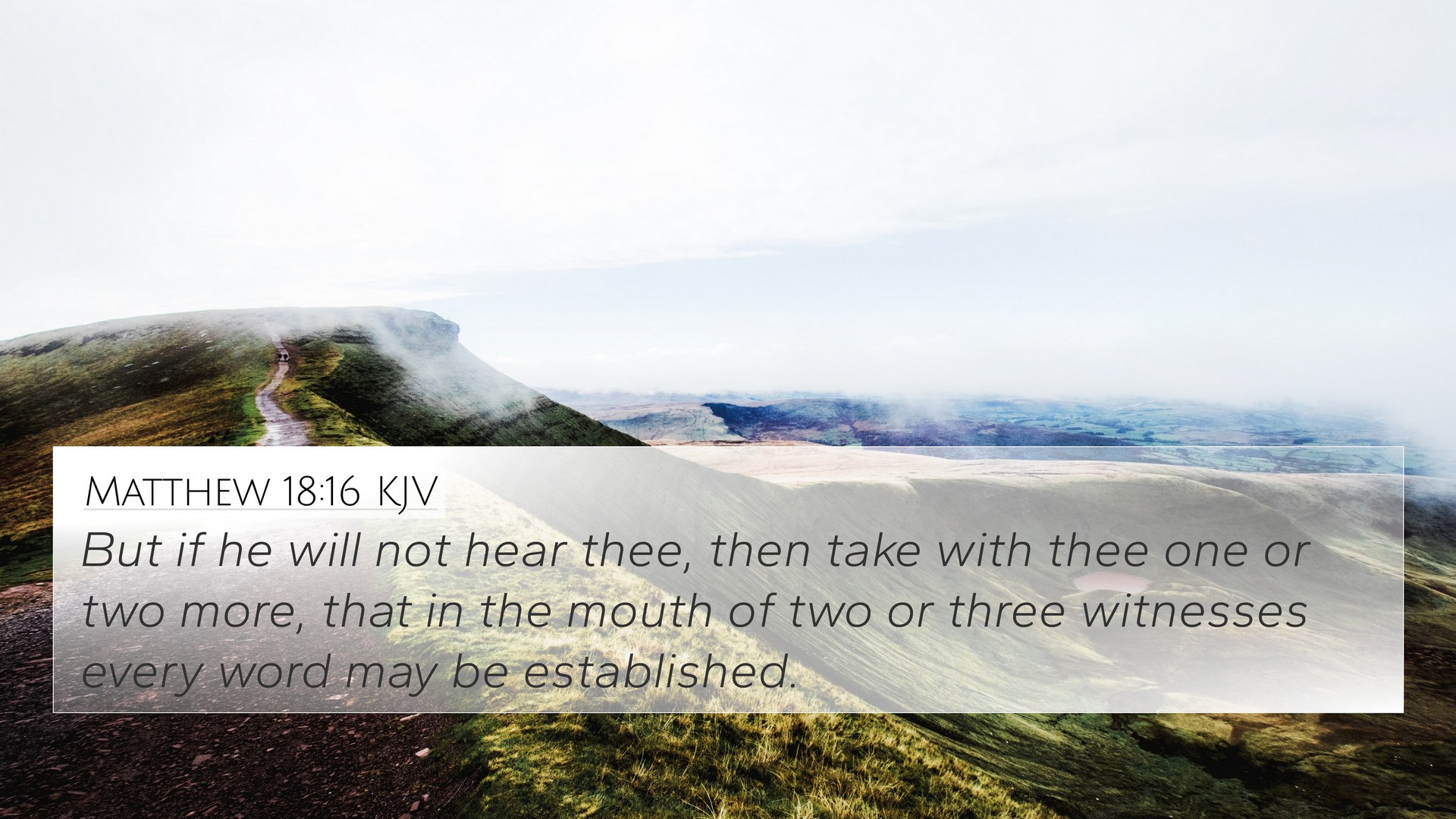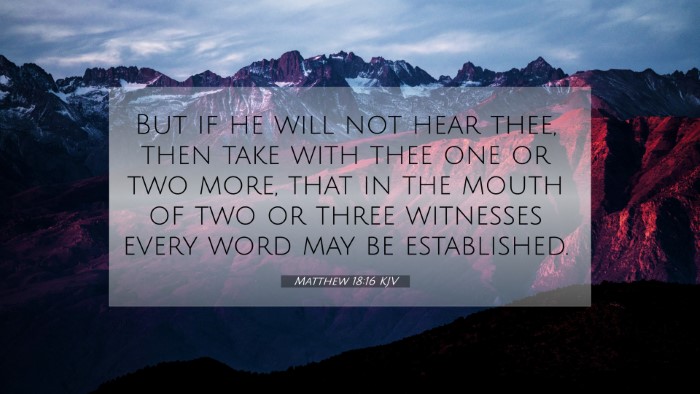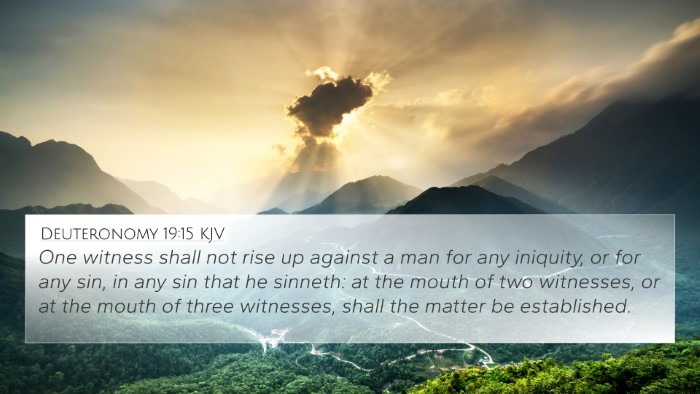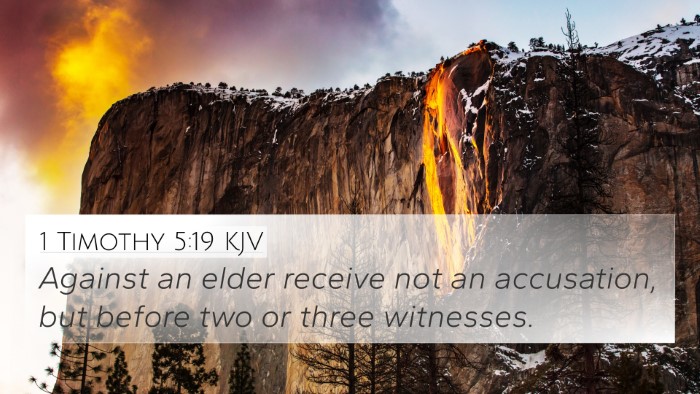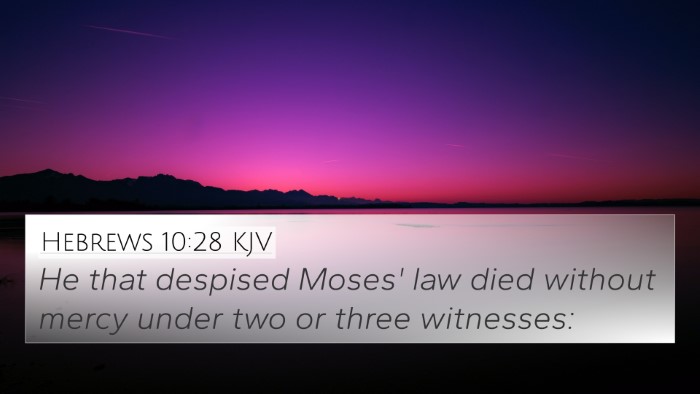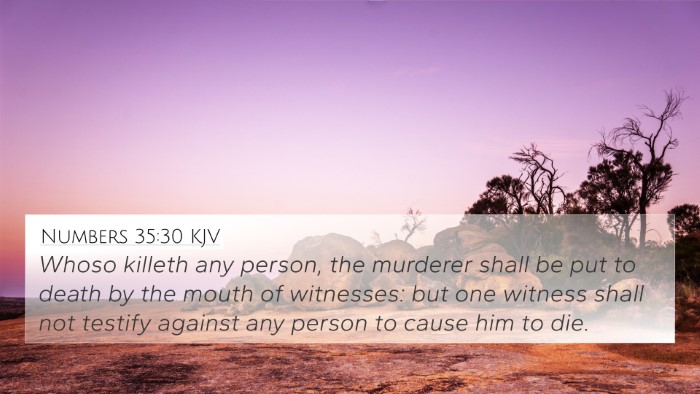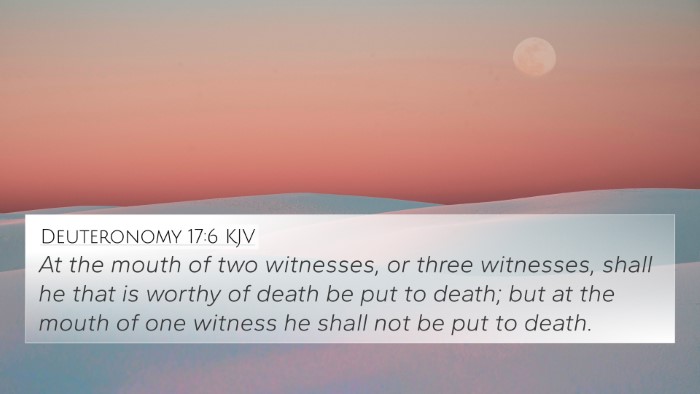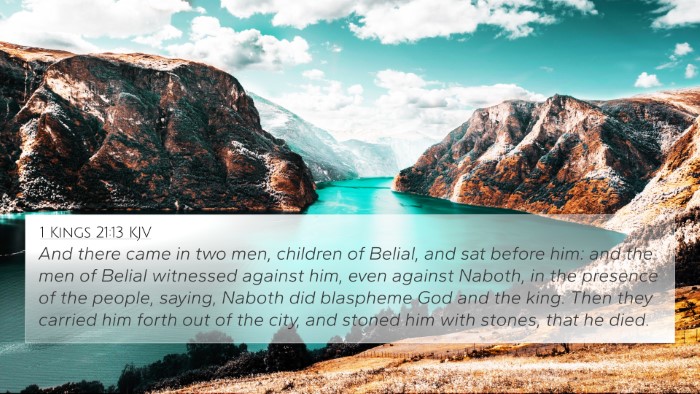Understanding Matthew 18:16
Matthew 18:16 states: "But if he will not hear thee, then take with thee one or two more, that in the mouth of two or three witnesses every word may be established."
This verse is part of Jesus’ discourse on how to address discord within the church community, emphasizing the seriousness of personal grievances and the importance of constructive confrontation.
Meaning and Interpretation
The significance of Matthew 18:16 can be understood through insights from several public domain commentaries, which stress the importance of reconciliation and community integrity.
Matthew Henry's Commentary Insights
-
Matthew Henry emphasizes the principle of justice and order within the church, noting that the presence of multiple witnesses serves to establish truth and fairness in addressing grievances.
-
He points out that the involvement of additional witnesses serves not only to promote honesty but also provides a layer of accountability for all parties involved.
-
The essence of the verse is not merely about legalism; it promotes healing and reconciliation in relationships, which is central to Christian conduct.
-
Furthermore, Henry argues that such actions contribute to the unity and peace of the church body, reflecting the heart of Christ’s teachings.
-
The emphasis on "two or three witnesses" cites Old Testament law, which underscored the validity of testimonies and protected individuals from false accusations (Deuteronomy 19:15).
-
This verse also foreshadows the importance of the community in Christian discipline, ensuring that no one person bears the weight of judgment alone.
Albert Barnes' Commentary Insights
-
Albert Barnes describes this directive as a practical approach to conflict resolution, indicating that Jesus provided a method for believers to restore relationships constructively.
-
He highlights that the intention behind bringing forth witnesses is often about the hope of reconciliation, rather than condemnation, aligning well with the overall message of grace in Christ.
-
Barnes also mentions that the phrase "every word may be established" underscores the necessity for clarity and truthfulness in conversations aimed at resolving disputes.
-
The real aim should be the restoration of the brother who has sinned, emphasizing that the ultimate goal of church discipline is redemption.
-
Moreover, this verse serves as a model for church governance, enhancing the communal sense of responsibility towards one another.
Adam Clarke's Commentary Insights
-
Adam Clarke elaborates on the cultural and legal contexts in which Jesus spoke these words, addressing the Jewish customs concerning legal witness requirements.
-
Clarke points out that bringing others into the situation not only affirms the claims made but also protects the accused from wrongful judgments by single opinions.
-
He also stresses the importance of trying to reconcile grievances privately before escalating them publicly, which mirrors the formal legal practices of the time.
-
Clarke emphasizes Jesus' focus on restoration, demonstrating that community health hinges on each person's accountability and responsibility towards others.
-
The essence of the teaching is one of forgiveness, with the structured involvement of others as a means to promote healing rather than alienation.
Cross-References for Matthew 18:16
Several Bible verses connect thematically and contextually to Matthew 18:16. These connections demonstrate the broader Biblical principles of accountability and reconciliation:
- Deuteronomy 19:15: "One witness shall not rise against a man concerning any iniquity or any sin that he commits; by the mouth of two or three witnesses the matter shall be established."
- 1 Timothy 5:19: "Do not receive an accusation against an elder except from two or three witnesses."
- 2 Corinthians 13:1: "This is the third time I am coming to you. By the mouth of two or three witnesses every word shall be established."
- Luke 17:3: "Take heed to yourselves. If your brother sins against you, rebuke him; and if he repents, forgive him."
- Galatians 6:1: "Brethren, if a man is overtaken in any trespass, you who are spiritual restore such a one in a spirit of gentleness, considering yourself lest you also be tempted."
- James 5:16: "Confess your trespasses to one another, and pray for one another, that you may be healed."
- Proverbs 25:9-10: "Debate your case with your neighbor, and do not disclose the secret to another; lest he who hears it expose your shame."
Conclusion
In summary, Matthew 18:16 addresses the necessary steps to take when confronting a brother or sister in sin. The verse serves as a reminder of the Biblical principles of truth-telling, accountability, and the importance of community in the spiritual journey. The cross-references provided help underscore the significance of these principles throughout scripture, highlighting the interconnectedness of Biblical teachings on reconciliation. As one delves into the thematic connections between the scriptures, they better understand the necessity of mutual support and restoration in the faith community.
